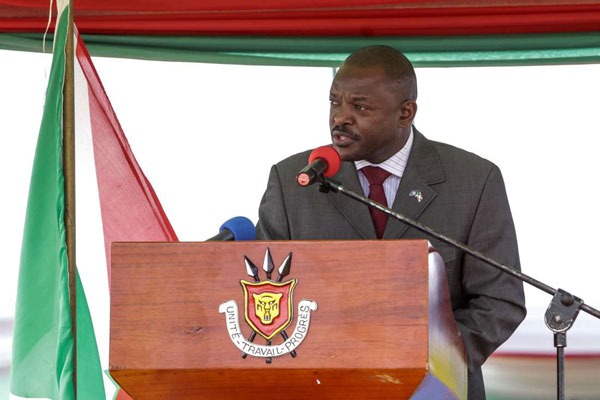News
Burundi Expels WHO Representative And 3 Experts, Declares Them Persona Non Grata

Burundi government is expelling four employees of the World Health Organization WHO including the organization’s country representative. These employees have been declared Persona Non-Grata and have until May 15th to leave Burundi.
The distrust between Burundi Government and WHO officials were highlighted an RFI report last month mentioning a pending decision to recall three senior WHO officials, including the representative in Burundi, Walter Kazadi.
It was reported that the World Health Organization in Burundi was kept out of samples and tests, unchecked sources on social media mentioned that the WHO team was ordered to leave the field.
The Burundian Ministry of Health did not want to react to the question of WHO representatives in Burundi.
Some commentators link the Burundi Government decision to the ramification of an exclusive investigation done in neighbor DRCongo by journalists Emmanuel Freudenthal and Joao Coelho on World Health Organization staff working on behalf of the response, accused of taking advantage of the system by increasing conflicts of interest and pressure on the teams responsible for combating the spread of the Ebola epidemic.
Technically the persona non grata doctrine does not apply to United Nations personnel. As described in the 1961 Vienna Convention on Diplomatic Relations, the doctrine applies to diplomatic agents who are accredited by one state to another, in the context of their bilateral relations.
The United Nations is not a state, and its personnel is not accredited to the states in which they are deployed, but work under the sole responsibility of the Secretary-General.
Founded in 1948, the World Health Organization (WHO), one of the most powerful UN agencies with more than 7,000 employees worldwide, recommends, with all its expertise, but remains dependent on the will of states. This does not prevent it from being regularly criticized.
After the 2009 H1N1 flu, which was less deadly than feared, WHO had been accused of having overreacted under pressure from pharmaceutical companies to declare the pandemic, which had caused the mass production of drugs.
WHO was later blamed, during the terrible Ebola epidemic in West Africa (2013), for failing to measure the scale of the crisis from the start.
A reform later, the UN agency can respond more quickly and effectively to epidemic outbreaks, as it is currently doing in the DRC, confronted since 2018 with an Ebola epidemic.
The arrival of the coronavirus in late December in China has raised criticism
Kenya Insights allows guest blogging, if you want to be published on Kenya’s most authoritative and accurate blog, have an expose, news TIPS, story angles, human interest stories, drop us an email on [email protected] or via Telegram
-

 News1 week ago
News1 week agoTHE FIRM IN THE DOCK: How Kaplan and Stratton Became the Most Scrutinised Law Firm in Kenya
-

 Investigations2 weeks ago
Investigations2 weeks agoMulti-Million Dollar Fraud: Three Kenyans Face US Extradition in Massive Cybercrime Conspiracy
-

 Economy1 week ago
Economy1 week agoIran Demands Arrest, Prosecution Of Kenya’s Cup of Joe Director Director Over Sh2.6 Billion Tea Fraud
-

 Business2 weeks ago
Business2 weeks agoA Farm in Kenya’s Rift Valley Ignites a National Reckoning With Israeli Investment
-

 Africa2 weeks ago
Africa2 weeks agoFBI Investigates Congresswoman Ilhan Omar’s Husband’s Sh3.8 Billion Businesses in Kenya, Somalia and Dubai
-

 Grapevine6 days ago
Grapevine6 days agoA UN Director Based in Nairobi Was Deep in an Intimate Friendship With Epstein — He Even Sent Her a Sex Toy
-

 News2 weeks ago
News2 weeks agoTragedy As City Hall Hands Corrupt Ghanaian Firm Multimillion Garbage Collection Tender
-

 Arts & Culture2 weeks ago
Arts & Culture2 weeks agoWhen Lent and Ramadan Meet: Christians and Muslims Start Their Fasting Season Together

















